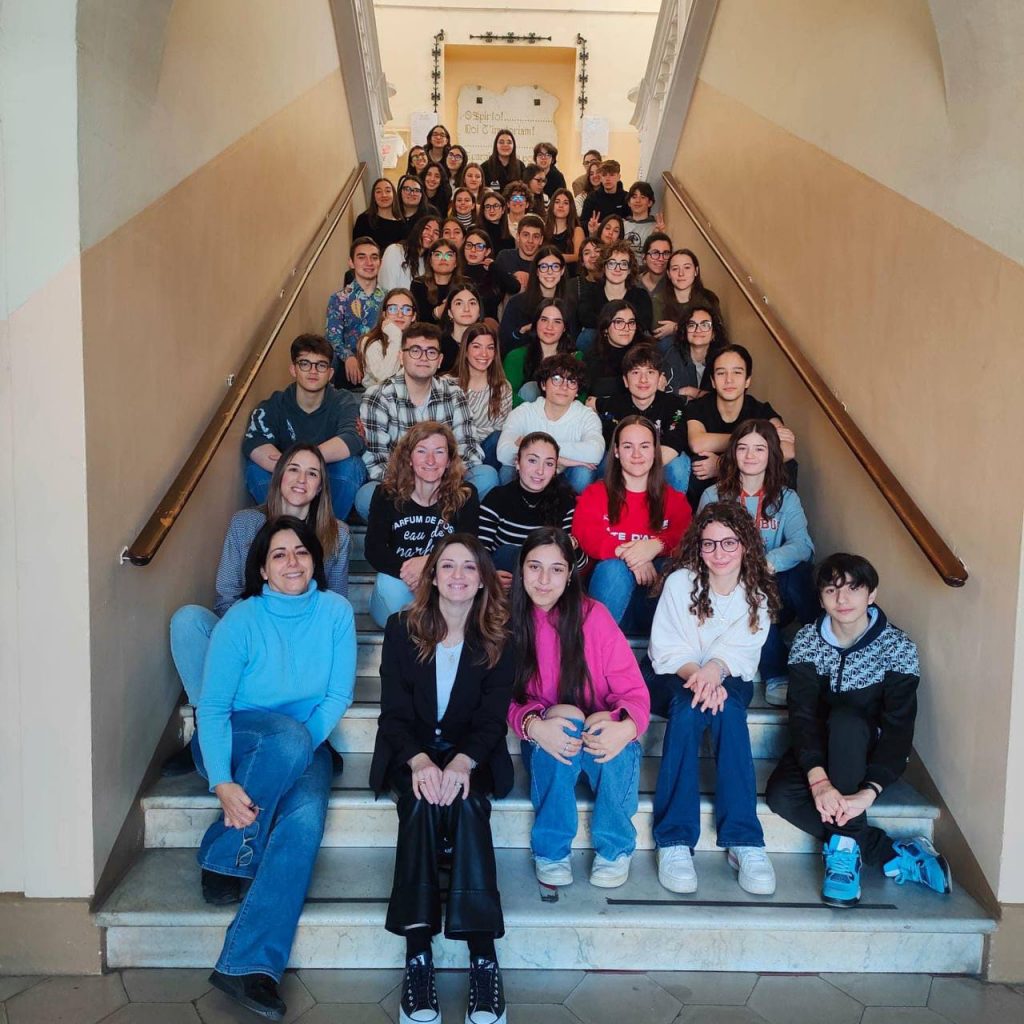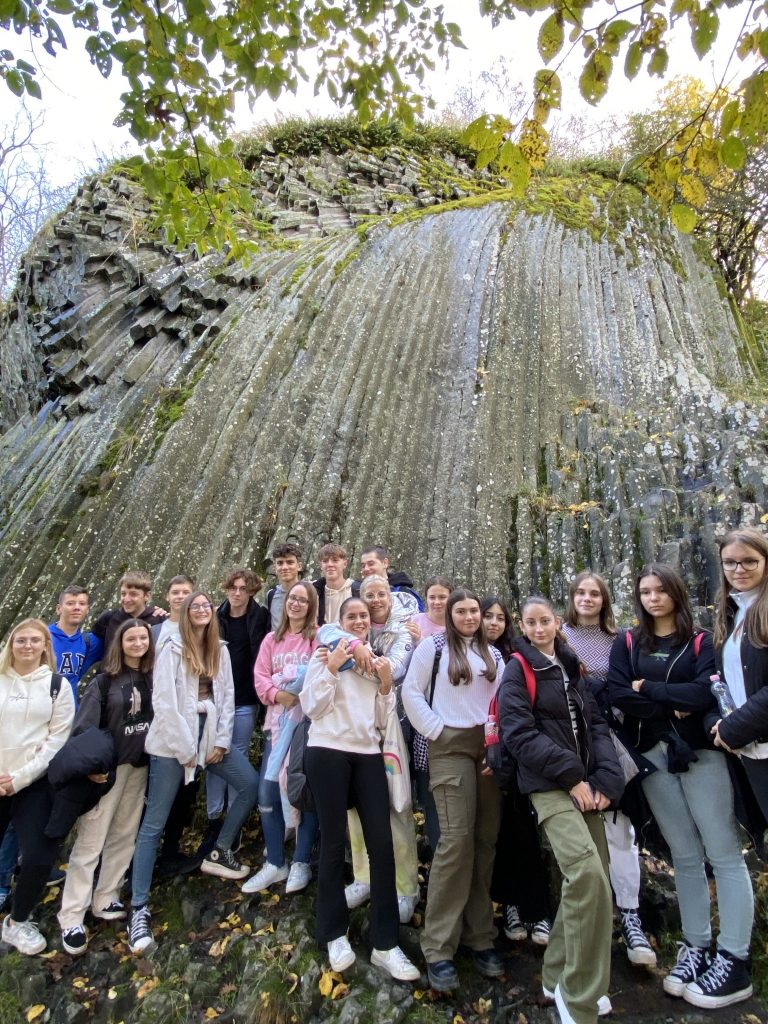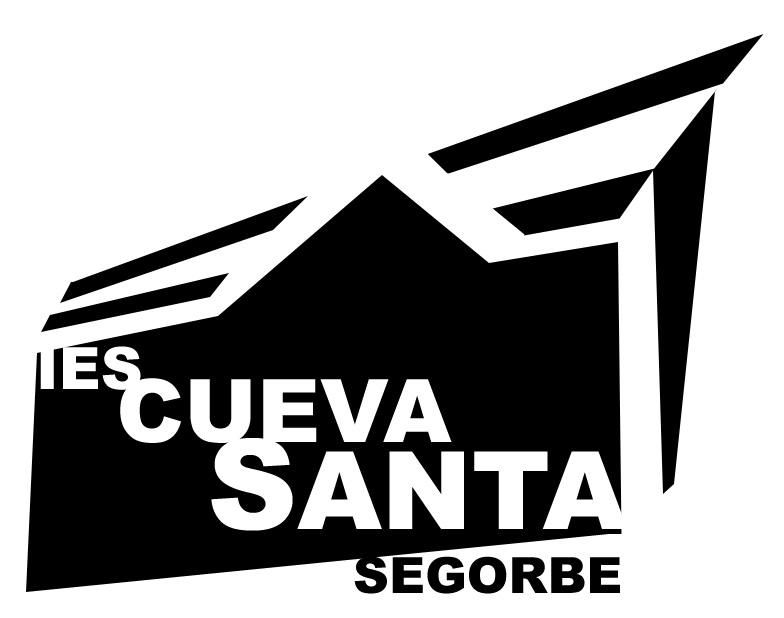Acreditación Erasmus+. Curso 2023/2024


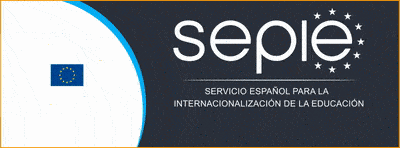
Observación de buenas prácticas (Job Shadowing) – Eschen (Liechtenstein)
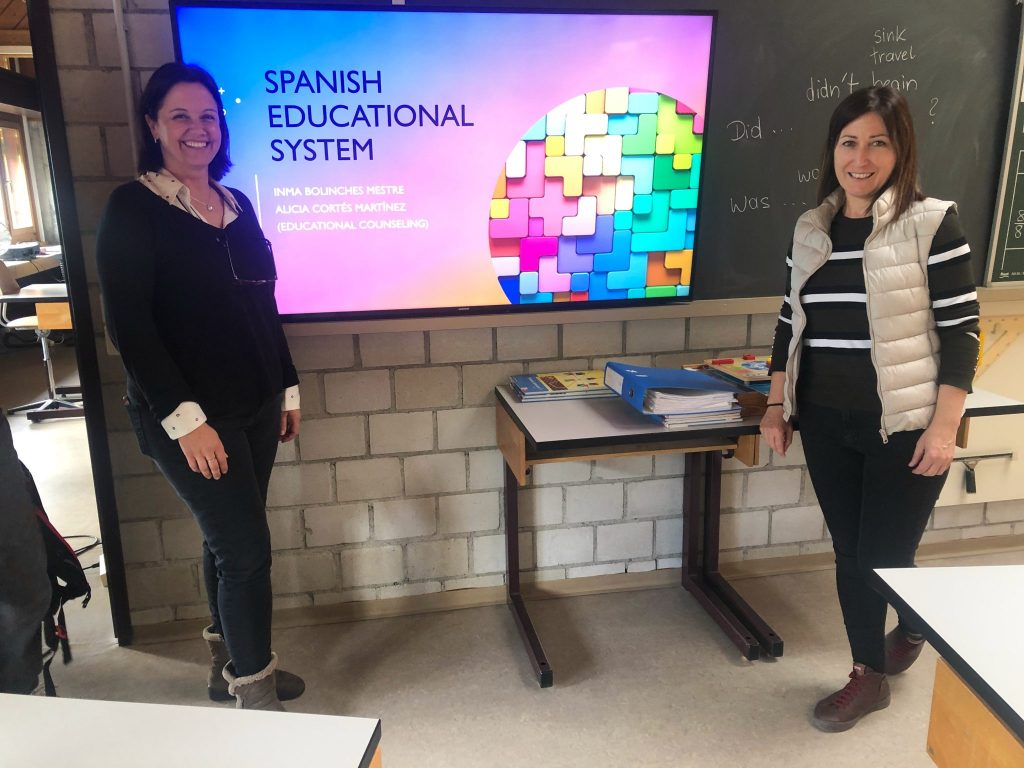
Durante la semana del 15 al 19 de abril de 2024, las Orientadoras Educativas del IES Cueva Santa, Alicia Cortés e Inmaculada Bolinches, tuvieron la oportunidad de realizar un Job Shadowing en Oberschule Eschen, un Instituto de Educación Secundaria en la localidad de Eschen, en Liechtenstein; esta visita fue complementada con la asistencia a otros dos centros educativos de naturaleza diferente.
Las orientadoras valoran positivamente los aprendizajes y la atención recibidos por todos los miembros de los equipos educativos de los tres centros. Esta experiencia les ha servido para poder conocer nuevas estructuras educativas, muy diferentes a la española, conocer profesionales de otro país con los que se han generado nuevos vínculos personales y profesionales y conocer la cultura y gastronomía de países como Liechtenstein, Alemania, Suiza y Austria.
En esta experiencia pudieron observar, de primera mano, cómo está organizado el sistema educativo en este país. El inicio del programa se desarrolló en el Instituto «Oberschule Eschen» donde observaron cómo se trabaja en éste, las diferentes materias que se imparten y el uso de nuevas tecnologías como medio de aprendizaje. Posteriormente visitaron el «Freiwilliges Zehntes Schuljahr», centro educativo en Vaduz, capital del país, donde pudieron ver cómo el alumnado procedente de otros países y con desconocimiento del alemán, aprendía este idioma para poder incorporarse, con garantías, al sistema educativo, después de pasar allí entre 12 y 18 meses. Y, para finalizar el proyecto, visitaron el «Time Out School», centro ubicado en Gamprin, donde eran atendidos (entre 3 y 25 semanas) un máximo de 8 alumnos/as con problemas conductuales derivados de salud mental, hiperactividad, depresión, … para su posterior reinserción en sus centros de procedencia.
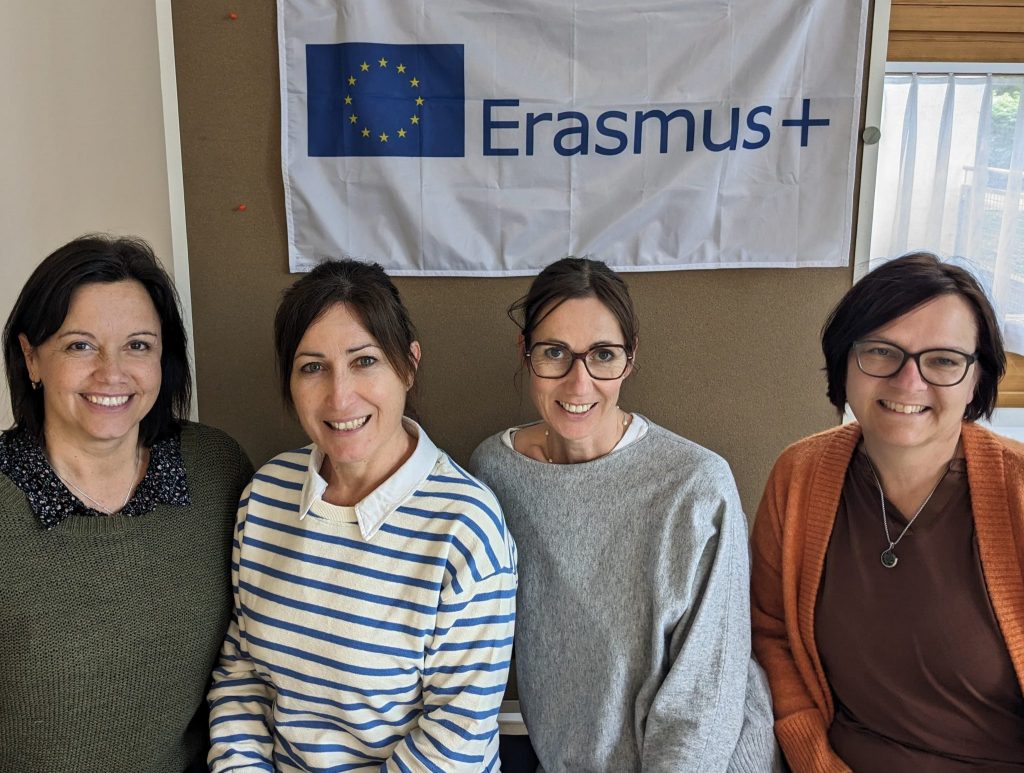
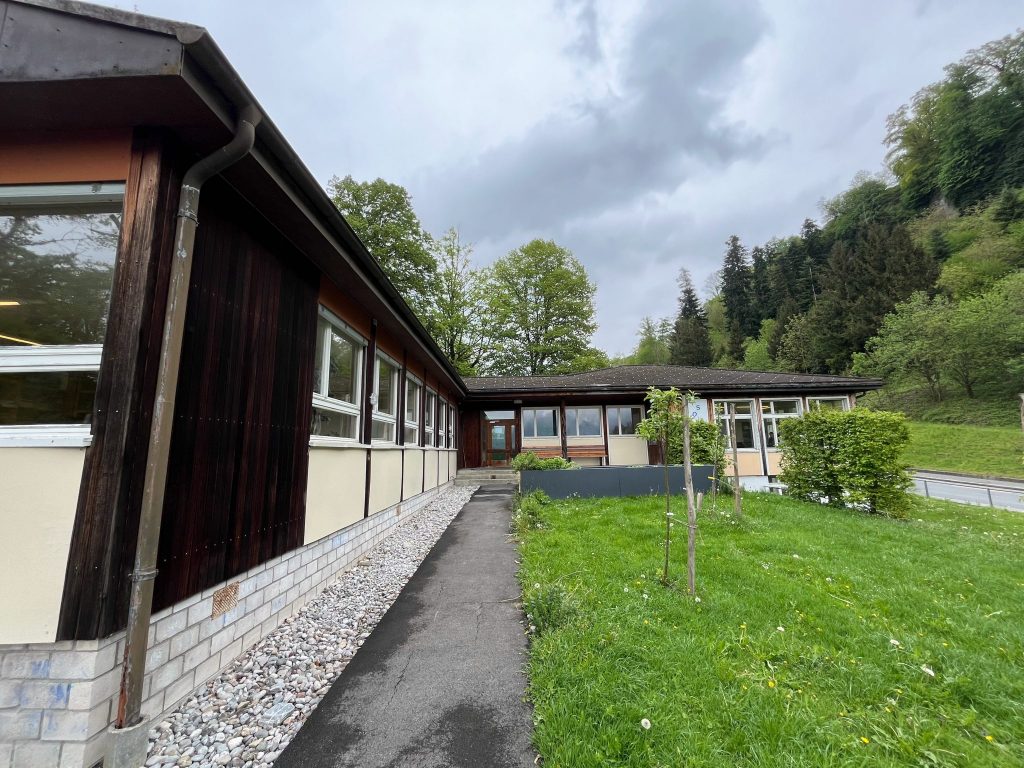
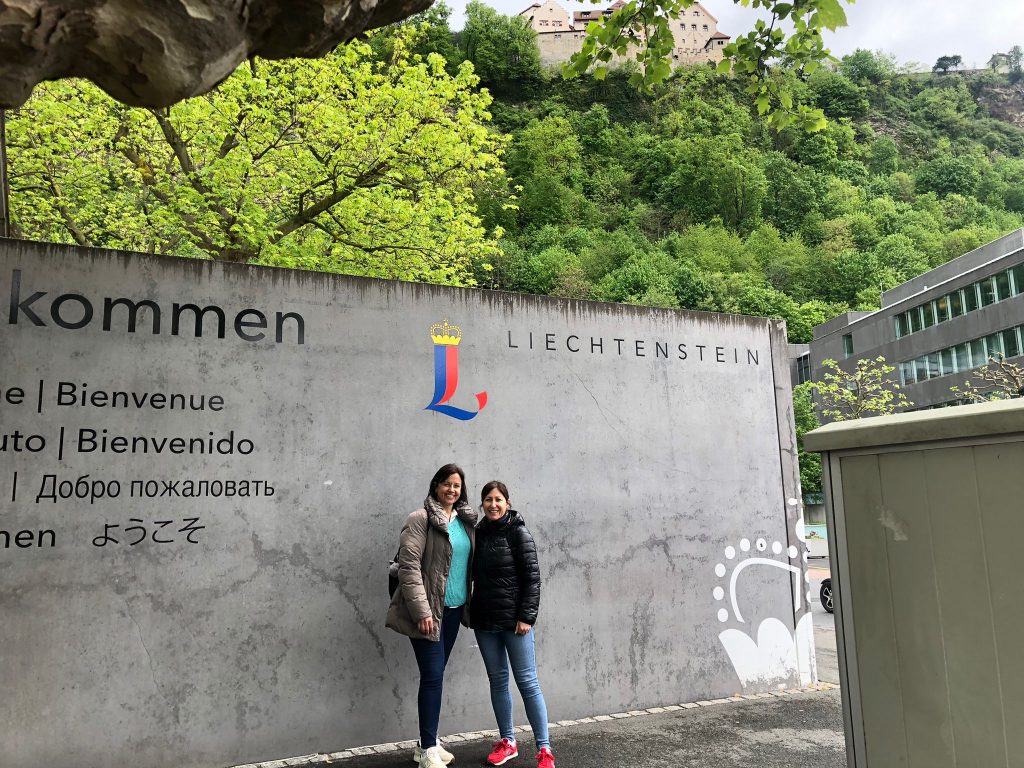
Movilidad profesorado – Split (Croacia)
Dentro del proyecto Erasmus+ del IES Cueva Santa de Segorbe, el profesor de plástica Javier Alamán Sánchez realizó el curso Digital Storytelling en Split, Croacia ,del 11 al 17 de mayo del 2024.
La experiencia ha sido muy interesante en bastantes aspectos. Los contenidos impartidos y las app trabajadas han resultado adecuadas para futuros usos en la asignatura de Plástica. Básicamente se ha trabajado Canva, Book Creator, Genially y AR. Todo relacionado con IA y chat GPT. Al estar toda la semana comunicándose en inglés, se mejora y pone a prueba la fluidez y comprensión del idioma, al igual que ser arrojado a la hora de relacionarse con otros/as colegas europeos.
Tuvo la oportunidad de disfrutar de un Programa social y visitar la ciudad de TROGIR y la isla de BRAC. Además de aprovechar una experiencia virtual 3D sobre el Palacio Diocleciano. El intercambio cultural, unido a los conocimientos adquiridos en el curso, ha hecho que sea una experiencia muy enriquecedora y digna de futuras ampliaciones.
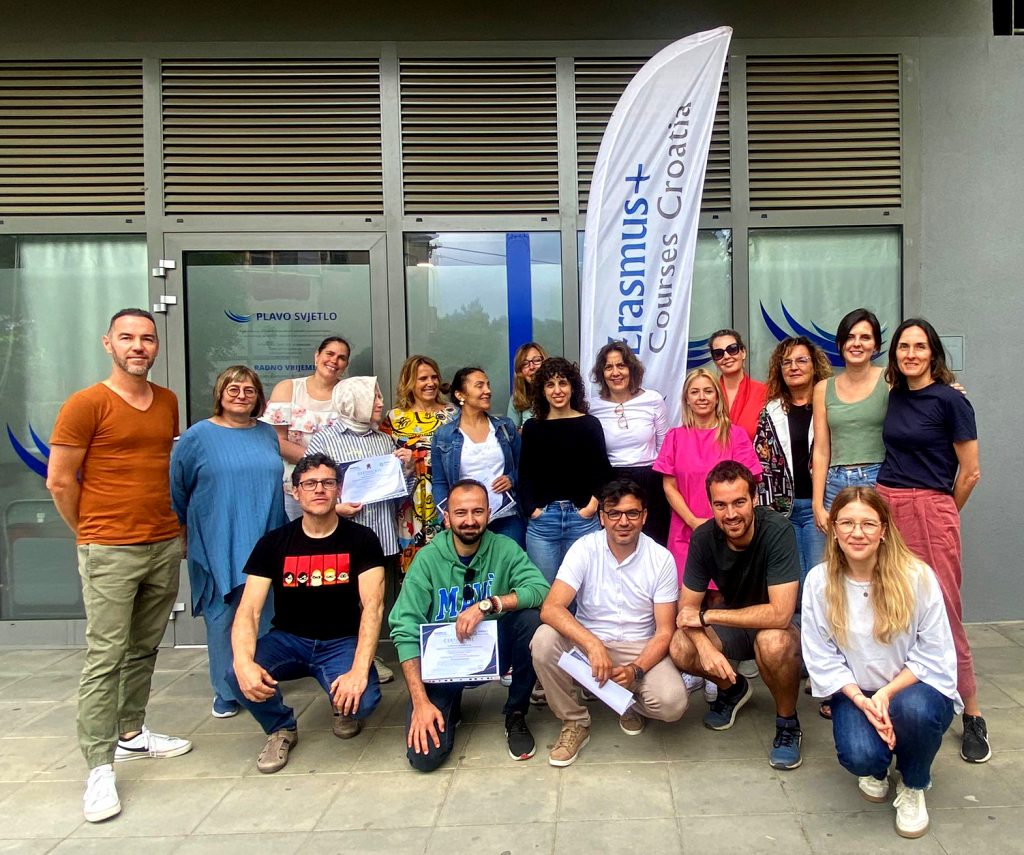

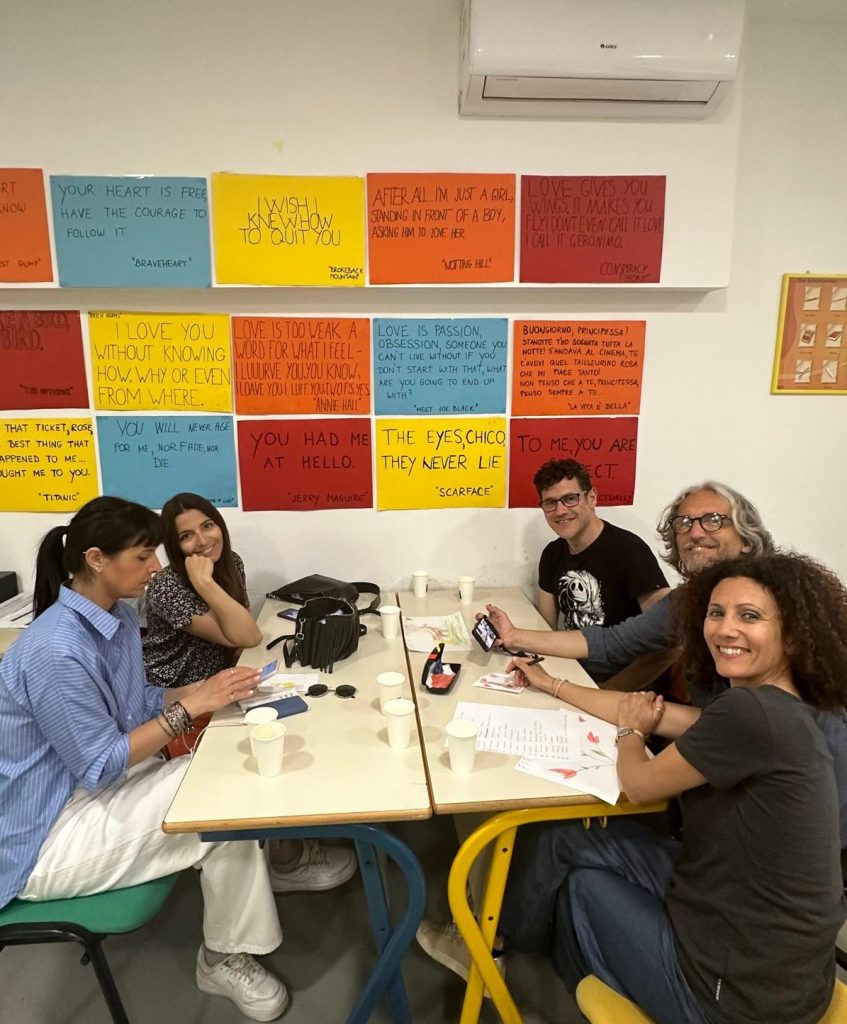

Movilidades alumnado – Salgotarjan (Hungría) – Martina Franca (Italia)
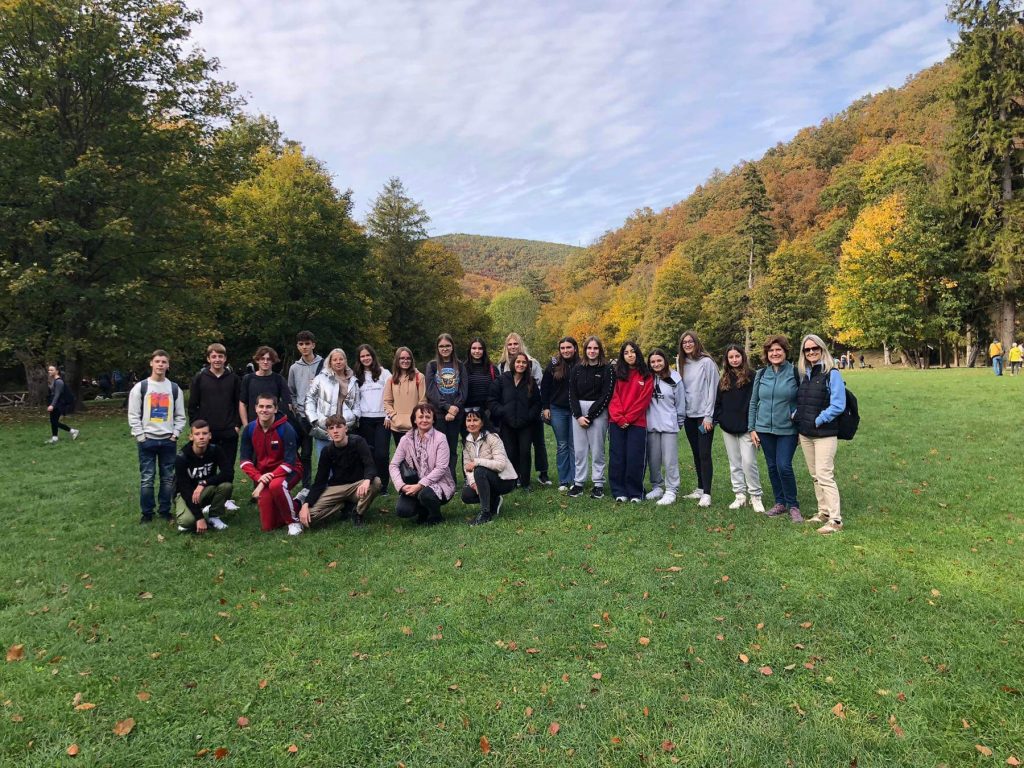
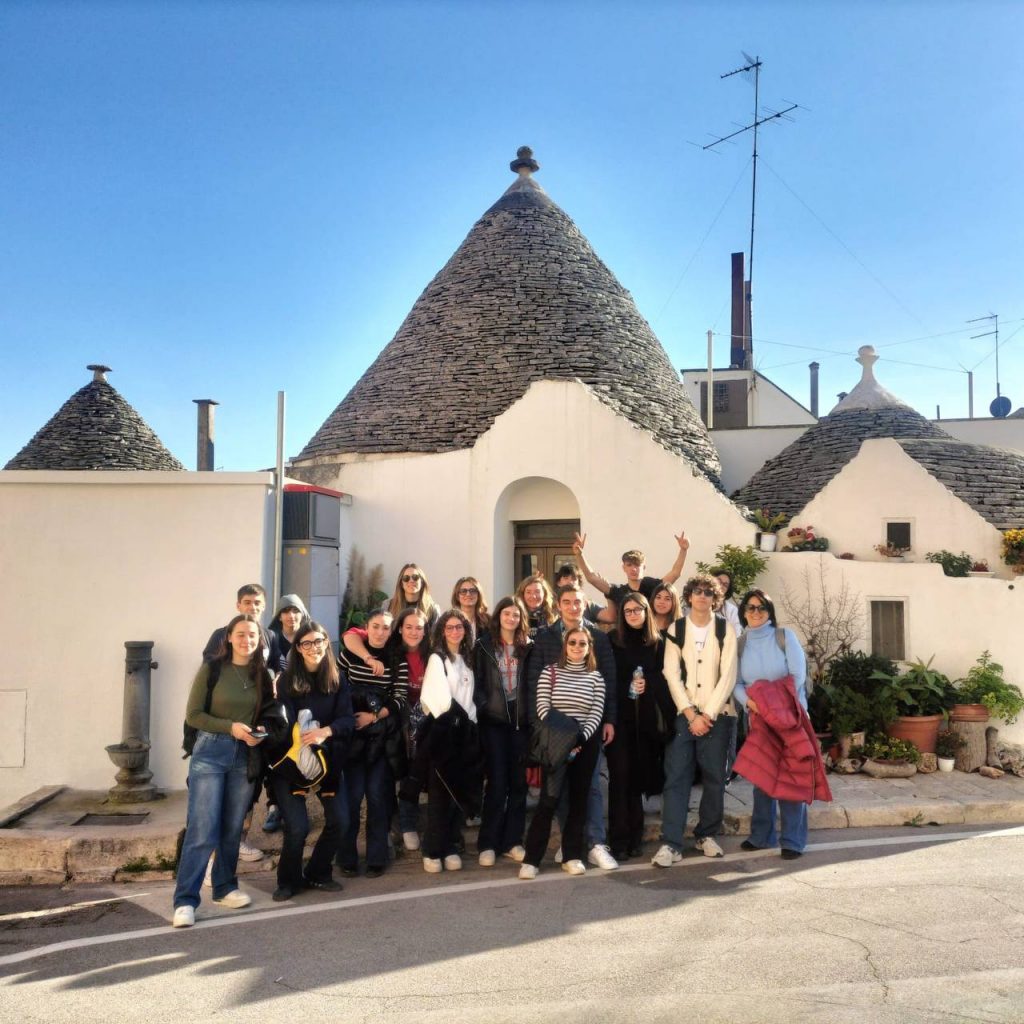
On more year, the ERASMUS+ program has offered an unforgettable experience to a group of students in 4ESO. We continued working on the topic ‘Environment and Sustainability’ as the main issue of the project. The exchange program was held with two European Schools: Bolyai János Gimnázium (Salgotarjan –Hungary) and Liceo Statale Tito lLivio (Marina Franca –Italy). Here is what the students think about their experience:
OUR WEEK IN HUNGARY (21st-28th October 2023).
When we arrived in Hungary, we were really excited and when we stayed there for a while, we became surprised about all the differences between both countries, even we knew there were going to be a lot.
The main differences we could notice were two: the volume of the people speaking and the timetables. Talking about the first thing, we realized that in Hungary they speak really low, and people were shocked when they heard us. Talking about the timetables, they have lunch at 12:00 a.m. and dinner at 6:00 p.m. when we are usually having “merienda”, so it was surprising for us.
One of the main activities we did was visiting Budapest, the capital city. Everyone told us the city was one of the most beautiful cities in Europe, but we thought people were exaggerating. In fact, they weren’t, Budapest is the most beautiful city we have been to. We also visited Salgotarjan, the town where we were staying, it was smaller than Budapest, but it was really big, as we are used to Segorbe, Navajas, Soneja… that are small towns. We also visited some natural parks very different from Spanish ones, as they have different vegetation because of the climate.
The families were really nice; we even were expecting them to be colder than Spanish families, but we all felt extremely comfortable, and the food was amazing, too.
By Paula Arceo Ibáñez & Daphne Clemente Alegría
THE MOBILITY IN ITALY (20th-26th March 2024).
In our mobility to Italy, we learned a lot of things, we learned about the Italian culture, their timetables, their history… Moreover, the people there were so kind that we socialized a lot, and they connected with us so well, it wasn’t difficult for us to communicate. About our host families, they accepted us as a new member and they spoiled us so much!
As we were introduced to their country that week, the thing that attracted most our attention is that they cooked Carbonara sauce with eggs instead of cream. They also were very much into fashion.
About food, we tried a lot of things, something like “Focaccia” that consists of bread with slices of tomato, oil and salt. We also tried a type of pasta from the region of “Orecchiette”. The pasta could be with tomato or pesto, but we also ate “Pasta Assasina” which was like “burned spaghetti”. We visited a cheese factory too, so we tried their fresh mozzarella cheese, and it was delicious.
During our stay, we made trips to a lot of different places, like the city of Bari, many churches of Martina Franca, San Dominico, “La Masseria de San Paolo”. The highlight was a town called Alberobello which was really special because the houses were white huts and, on the roof, there was the symbol of their religion.
We liked this experience, we didn’t want it to finish, we enjoyed every minute of it, and we left Martina Franca with a lot of new friends and good memories.
By Alan Teruel Morello, Antonio Marcos Rodríguez & Nihad Bouras
Our experience in Italy was incredible for the following reasons: on the one hand, we were treated very well and we did special activities that made us aware of our environment. On the other hand, we also discovered another language and culture. In their school they are very sociable, they have food and drinking machines. In our opinion, the students there are very polite and we felt the warmth of their school. Not only the students, but also the teachers.
In the second part of the exchange, when they came to our school, they got easily adapted to all the participants in the project -Hungarian and Spanish students and teachers. We think that they enjoyed that week with all the activities. It was very hard to say goodbye but our friendship and links are very strong and we know that it’s not a permanent goodbye.
By Miguel Angel & Elena Castilla
THE WEEK IN SPAIN (13th-20th April 2024). During this week we did a lot of amazing outdoor activities like the Scavenger Hunt around Segorbe, the barbecue in Torás after planting some trees, the tour around Valencia learning about its history, the water route to ‘La Esperanza’ and finally the day trip to Canet and ‘San Josep Grottoes’.
We also learned a lot along the week because we visited the Water Treatment Plant in Algimia, we went to ‘The Bulls and Horses’ and the ‘Olive Oil’ museums, we made a project to learn about the SDG’s and we saw a 3D Movie at the ‘City of Arts and Sciences’ about natural life. We also enjoyed some activities with our music and maths teachers.
Obviously, we didn’t spend all day doing the school activities because we had free time sometimes between activities and after them. Besides, there was a family day where the host families took their guests to places in the Valencian Community so they could learn more about the country and the culture.
By Amanda Gullsten, Patricia Castillo Carot and Mario Perez Santamaría .
BEING A HOST. At first, it was difficult to think about activities to do and make our partners comfortable to be part of our family for one week, but the week was coming closer. We were nervous about it, however we had some experience because we had been in Hungary first.
The day arrived and we were excited to meet them once again; the welcome went so well, and our families received them as warmly as they could. During the whole week, we tried to show them all the typical things like food, different timetables, places where we usually go, music…
BEING A GUEST. Being in an exchange can make you grow in many ways as a person. As always, it can be a weird and scary experience when you have to live in a different country with people you don’t know, and that’s why we’re going to talk about this experience.
Being part of the exchange as a guest is a very enriching travel experience, you get to know a different culture and how families live in other countries. Moreover, you try homemade and typical food of this place, so you really get the full experience. Furthermore, you build relationships with native people and have the opportunity to talk to them.
Living a totally different life with people that don’t speak your language can seem hard, but you really feel like a member of the family. The personal links you build these days are so strong that the worst part of this experience is having to say goodbye and hoping to come back to see your host family again.
By Natalia Martínez Ángeles & LauraGil Ballestar
PERSONAL RELATIONSHIPS. During the time that we were participating in the Erasmus+ Project, we had the opportunity of knowing different cultures and making friends outside our country. Our friends from Hungary and Italy helped us to have an amazing week.
Apart from the school activities, in our free time we used to hang out all together, we had a lot of fun, and we made our friendship stronger all the afternoons; we went to different places to have a snack and play typical Spanish games and visit different places.
Now, to show you all the opinions about our personal relationships, we asked two different students and friends from Hungary and Italy.
‘When I joined the Erasmus Project, I never imagined living this fantastic and emotional experience. From my first moment in Spain, I felt welcomed and included by all the people who were part of this project. Thanks to this real exchange, first of all I met a different culture and then ,above all, I had the opportunity to meet fantastic guys both Spanish and Hungarian, and my relationship with them is the thing that I will never forget. I had beautiful moments, and I will never get tired of recommending this intercultural exchange to anyone who wants to live one of the most beautiful experiences of their life.’ Andrea (Italian student)
‘For me personally, this trip may have been the time of my life since I haven’t been to too many countries. I really enjoyed the programmes, and I’m really happy that I had the opportunity to get to know this country and its culture. It is obviously different, but I had no issues with anything through the week. The people are really nice and caring, and I would like to thank everyone for their kindness. I also made a lot of friends and I’m looking forward to meeting them in the future. This week was amazing and thank you for everything.’ Csabi (Hungarian student)
By Raquel Gómez Flor, María Muñoz Zarzoso & Carla López Tortajada
BENEFITS OF PARTICIPATING IN A EXCHANGE. The Erasmus project was very beneficial to us and to our partners. Firstly, this experience gave all of us the opportunity of meeting people from other countries. In each mobility, the host school prepared an extraordinary welcome to their guests with many activities to get to know their unique culture, their language, their typical food and their extraordinary people. Secondly, we also did a lot of trips to know different places and activities related to environment and sustainability.
In conclusion, we think that this experience is very positive for all the participant students. We strongly recommend it to future students.
By Julia Blay Soriano & Helena Martínez Lázaro
